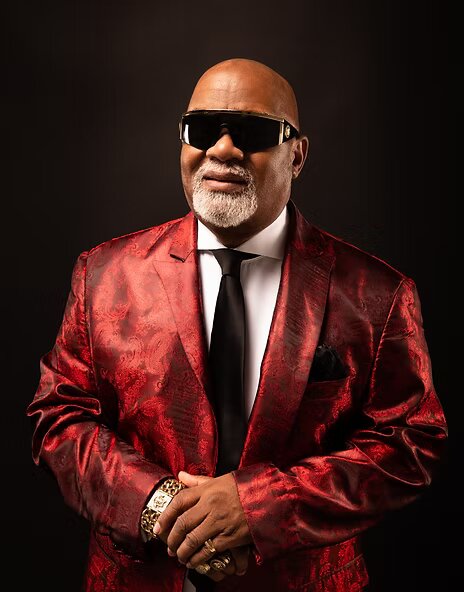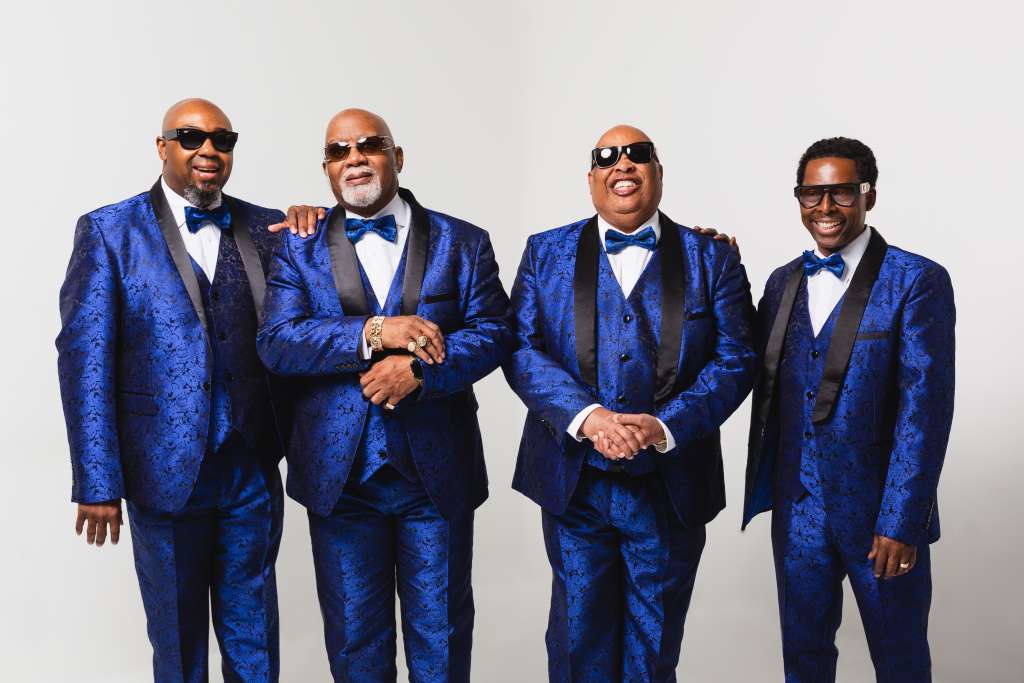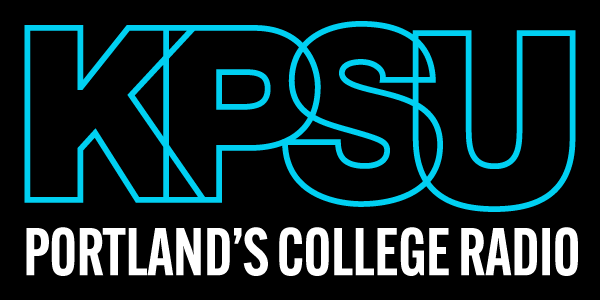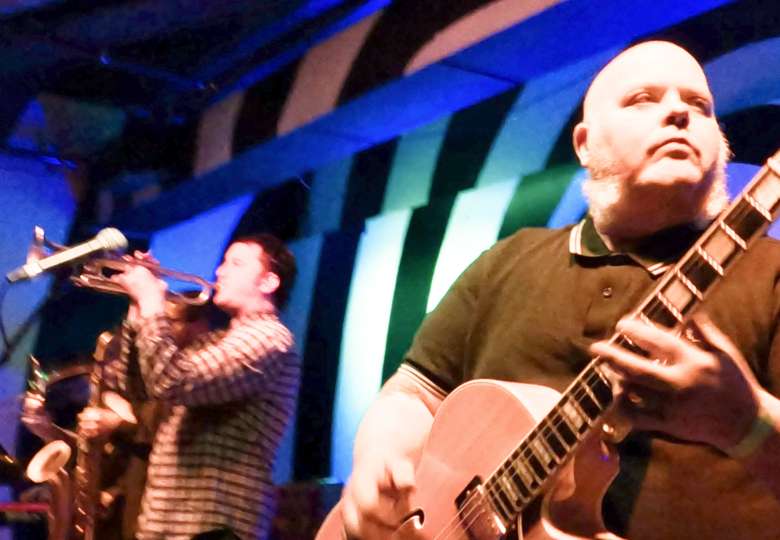By Robyn Story

The Blind Boys of Alabama have a concert in Portland on the 15th of May at the Aladdin Theater, and offered us the chance to interview Ricky McKinnie and host a giveaway for a pair of tickets when they reached out to us. Watch our social media for more information about the giveaway if you would like to win tickets!
I sincerely appreciate having had the chance to talk with Ricky on the 2nd of this month, as his junior in the music industry. The interview was conversational and friendly as we spoke over the phone; me on my couch with my curious cat nearby, and Mr. McKinnie in Holland while on the European leg of their tour. What an amazing time we live in, being able to connect to others across the world! I am grateful for his sharing some time on his day off with me. I look forward to going to the concert and meeting in person.
Note: I was hoping to also share the full audio of our conversation. Unfortunately, the quality of the interview audio was greatly reduced due to what I presume was magnetic interference. I had significant trouble finding a means to record the call that my phone settings would allow that also did not require an invasive app, so I recorded with the phone on speaker phone and my field recorder nearby and aimed at my phone. I had overlooked that even being nearby would be problematic, since my phone has a very strong magnet in it. As a recording tech, this was an unfortunate and embarrassing mistake to have made, but I was able to clean it up enough to be able to make a transcription of the interview. I am open to feedback on the ability of screen readers to read this interview, as well as suggestions on how to record phone calls on a newer Android so that I can do future interviews more effectively. Confession time now over, and on to the interview!
Transcription of interview audio (lightly edited for clarity):
Story: So first of all, thank you for agreeing to do this interview with me. As a singer with an acapella congregational hymn background, and as a newer music producer, I was keen to hear your insights and experiences in life and the music industry.
So my first question for you was how did you discover that you liked singing?
McKinnie: Well, my mother was a professional singer and I started singing at an early age in the choir.
Story: So you started with a church choir?
McKinnie: Yes.
Story: Nice. How old were you when you started that?
McKinnie: About seven.
Story: Nice. If someone was just discovering the Blind Boys of Alabama, how would you introduce your group to them?
McKinnie: Blind Boys are a quartet. They sing gospel music and they let you know that a disability is not about what you can’t do, it’s about what you do that makes a difference.
Story: Very cool. So how are the members of the group chosen? Because I know it’s shifted a little bit over time.
McKinnie: Well, we try to find guys that can sing and have been singing for a while. That’s pretty much how it’s chosen.
Story: Do they tend to seek you out?
McKinnie: Sometimes they do and sometimes they don’t. We look for blind guys that have talent and sometimes they come to us, but a lot of times we kind of went through different people, friends.
Story: That’s true, I guess you would have some connections.
I was seeing that you own your own music studio. Do you mainly focus on gospel artists or do you have a specific genre you focus on or are you open to a lot of different types of artists there?
McKinnie: We’re open to all different types of artists as long as the music is clean and true. We don’t mind recording. We’ve had a lot of people to come through, a lot of secular artists as well as gospel artists.
Story: As far as the gospel artists, how do you hope your musical heritage is carried on by the younger generations discovering their voices?
McKinnie: We hope that through our singing that somebody will remember that the Blind Boys, we sang music that was straight from the heart, of the soul, music that made you feel good, and music that not only was music acapella songs, but we just sang songs that make you feel good.
Story: So make sure to uplift other people with them?
McKinnie: Yes.
Story: I also saw that for you, you were already singing and active in music when glaucoma took your sight, and that you work in charities regarding that. But I was wondering, that turning point in your life, how did you handle such a big change in your way of living because of health? I know a lot of people struggle with different health issues and maybe something you say could help them too.
McKinnie: Well, you know, it didn’t really affect my abilities to do what I was doing. You have to know that… who you are within yourself. I’ve always been a dreamer. I’ve always been a dreamer. And if you can dream the dream, then you have to do the work and keep the faith. Things usually work out no matter what situation you’re in.
Story: So your faith helped you keep going and doing what you needed to do?
McKinnie: Yes. But you have to do the work. But after you do the work, keep the faith and know that no matter what your situation is, God can work it out.
Story: I actually, when I knew I was interviewing you, asked my friends, you know, what would you ask Ricky? And one of my friends was like, what was it like to win a Grammy? And I’d add on to that, what is the process like for receiving the nomination and winning the award? Like, as a person experiencing that, what is that process like?
McKinnie: Well, you know, first thing, you have to sing to people that are already out there doing the work. You just can’t, you know, you got to put your craft together. And then you got to sing to people that can help you to move forward. Those who have already moved forward. And sing in places that make a difference. You know what I’m saying? Yeah, so it’s all about how you sing, what you sing, and what kind of music it is that you want to do. First of all, you got to make up your mind what it is you want to do. And after you do that, you just start being around people that are doing the same thing that you’re doing or that you want to achieve.
Story: Gotcha. How do you start forging connections in music with other people who are doing what you want to do?
McKinnie: Well, management. You got to get a good manager, somebody that knows somebody, you know. And if you got a good management team, that’s what helps you to move forward. You got to know somebody that knows somebody else. And that’s what makes you able to move forward.
Story: Gotcha. What do you look for in a good management team or a manager?
McKinnie: Somebody with experience. Yeah, you got somebody with experience. First of all, you look at that resume and see what have they done. And that tells you whether or not they can help you. If they’ve already done things with different people, then you’re headed in the right direction. But if you get with somebody that haven’t done any more than you already have done for yourself, you need to move on and find somebody else.
Story: All right. As far as the songwriting goes, with the Blind Boys specifically, do you tend to do original songs or a lot of arranging of traditional songs or a mix of both?
McKinnie: It’s a mix of both. In the beginning years, we pretty much did all our own songs and then songs from the past. But now we collaborate with different producers to do our music as
well as doing our own songs.
Story: Okay. Let’s see. Sorry, my cat is all up in our business right now trying to step on the phone and my interview notes.
McKinnie: Okay.
Story: Let’s see. I work for a college radio station, actually, and I’ll publish this as a blog on our site and share it wherever I can. But is there anything that you would say to college singers and musicians specifically that are just getting their start? Any advice you would share with us?
McKinnie: In order to be successful, you have to know that it’s not just about singing. You have to realize that music is a business. You learn your craft the best that you can. And then you get around people that know the business or you learn about the business. And parts of having a manager, a producer, and then once you learn the business, and then you start to do that as you want, which way you’re headed. First of all, you got to know what it is you want to do. And then when you realize what you want to do, then you start making a diagram. How do I get from point A to point B? You know.
Story: What about those who want to work behind the scenes, like in the studio as the engineers or as the producers in this situation? Do you have any advice for people looking for those roles?
McKinnie: Yes. There’s room for everybody. I mean, behind every record, you got to have a person in the studio, a musician, studio musicians, people working in the studio itself. So it’s good to go and learn as much as you know how to know about a studio. How is it done? Lighting, recording, directing, and all that comes into play in order to make it happen.
Story: So I come from the Portland, Oregon area. And while we do have a music scene, we’re definitely no L.A., New York, Nashville, or anything like that. It’s kind of on my heart to try and help our scene thrive and grow. And as a result, hopefully help our city grow since it is known for being an artsy-type city. What would you think could help a city grow its music industry?
McKinnie: I think that if you really want to make it grow, you got to take it to the streets. Take it to where other people are. Take it to the streets. Take it to the churches. Take it to the different, you know, they always have different types of festivals. People don’t know that you want to sing in different places unless you take it to ‘em. So in order to make it grow, you got to take it to where you want to be.
Story: That makes sense. As far as the tour goes, how many cities are you stopping on in the U.S.?
McKinnie: We’re going to stop in about, right now I’m overseas. We’re going to five cities here overseas. And then when we get back to the United States, I think we’ve got about three more shows to do. And then we’ll go back home. I just started here in Belgium. Right now I’m in Holland.
Story: You’re in Holland right now? Oh my. That’s really cool. So there is a market for American gospel music even in places like Holland then?
McKinnie: All over the world. We’ve been to Finland. We’ve been to Holland. We’re going to Sweden. If you take a look at our itinerary, our schedule, look at the Blind Boys dates, you’ll see that right now we’ve got to go to England next. We’re going to the UK and then we go to Sweden and then we’ve got to go to Finland. So it’s really out here. You just have to know what you want to do.
Story: Very cool. Yeah, I’ve seen the U.S. dates but I haven’t seen the international ones, I guess. As far as touring goes, one of the things on my mind is accessibility issues. For me, it’s other things like I have fibromyalgia and I’m sensitive to the sound being too loud and things like that. But for you, have you encountered anything in venues or just the concert setup process that you would love to see improved or changed?
McKinnie: Well, you know, a lot of people, and you really can’t blame it all on the venues, you have to know how to adapt yourself to different places. Sometimes the band is just too loud. So you have to know. You go in, you have a sound check, and from the sound check, that’s how you can see whether or not your music is too loud. You have to adapt to the place where you’re singing. When you’re in a music hall, if you’re in a small place, you can’t sing like you’re in a music hall.
[both laugh]
Story: So the performers have to adapt too for the sake of the audience.
Is there anything that the audience or the venue could do for the sake of the performers that would make things better?
McKinnie: Well, a lot of times the venue, they try to adapt to the performer. So you need your own people, somebody out in the audience when you’re having a sound check, to let you know if you’re too loud for the building. So because they’re not going to tell you about your own, how loud you are. It’s something that you have to do yourself. You have to know, you know, some things are just common sense. A lot of musicians, they want to be heard. So you have to know this. If you have a singing group or a band, people come to hear the singer and listen to the band. So the music should never be louder than the singer. For a long time now, the musicians want to be heard and you can’t hear the singer. So the main concept for me is this. I let all of the people that are working with me know, it’s a singing group first. They come to hear the singers and listen to the music. And that makes it work.
Story: Right. And more generally, I guess I was also asking, what makes the experience best for the performer, and everyone, that maybe sometimes isn’t there? What can be a struggle with the concert process? Like, for example, as an audience member, sometimes you’ll be in line and have no access to a restroom or food or parking nearby while you’re waiting to get into the venue, or things like that. Or you can’t re-enter after you exit to do something. And that can be a difficulty for some people who have sensitivity issues or autistic or children who come to the shows. That kind of… issues of how would you like to see the concert experience improve from any of the participants’ angles?
McKinnie: Well, I mean, that’s something that the venue itself has to be aware of. The venue, if it’s a disability, if it comes to disability, if they have wheelchair ramps, they have the bathroom and equipment for people with disability. That’s something that you have to know on your own. But as far as going in and out of the building, there should be some type of setup, wristbands or something, so that people can make it easier for the people. So it’s a responsibility of the venue, not the artist, but the venue.
Story: Because from the artist’s perspective, you want people to be able to enjoy the concert.
McKinnie: Oh, yeah. So my job is to have the music right, have the sound right, so that people can enjoy what we’re doing. And because if the music is too loud, that takes away from the whole thing. So you have to, in order to, it’s the artist’s job to make sure that the sound is right. It’s the venue’s job to make sure that the venue is set up for all people, you know?
Story: So, similarly, when you tour, who all do you bring with you and what local talents do you hire?
McKinnie: Well, we bring our whole, our own team of people. We bring our assistants, we bring our tour manager, sometimes my manager comes along, but mostly you’re going to see the Blind Boys. You’re going to see our musicians, our singers, and our tour manager.
Story: Do you tend to, between cities, just put everything on planes or a bus or how do the logistics of taking a full ensemble work for you all?
McKinnie: Well, things have changed so much now. We don’t carry equipment anymore. The venue supplies all the equipment, so we just come, the equipment in there. We do what we do, and that’s the way we do the work. The guitar players bring their guitars. All the drums are already there. The guitar amps are there. Everything is in place so that you can do what you come to do. Yeah, we haven’t carried any equipment in a long time. Back in the day, you had to carry all your own equipment, your drums, the PA system, and everything, but no more. We just come, your singers come as they are…
Story: Yeah, the singers have it easy.
McKinnie: [chuckles] The singers bring their voices, the musicians bring their instruments.
Story: Very cool. I was curious about that, because, you don’t, like, take drums on the plane, do you? But, no.
McKinnie: No, no, but, back in the day, we weren’t even going flying, we had vans, we had buses, we had trailers, but since we’ve been doing mainstream, we haven’t done that in a long time.
Story: So, I’ve used over 20 minutes of your time. I apologize. I have one last question for you, which is, could you share a favorite memory of touring with the Blind Boys for us?
McKinnie: Anytime we come to a concert and someone comes to the concert feeling bad, and they leave feeling better, or they come to the record table and let us know how much they enjoy the group or how we, the music, touched them in a special manner and it made a difference in their life or made a difference in the way they think about life. It just made them smile, turn a bad day into a good day. That is what it’s all about.
Story: I feel that. I’m actually performing tonight with my college choir, and we’re hoping to do the same thing for our community.
McKinnie: Very good. Well, I’m looking forward to meeting you when we get there. I know you’re going to be at the concert, huh?
I would love to. […] Thank you very much, Mr. McKinney. It’s been a delight talking to you, and I look forward to a couple weeks from now.



